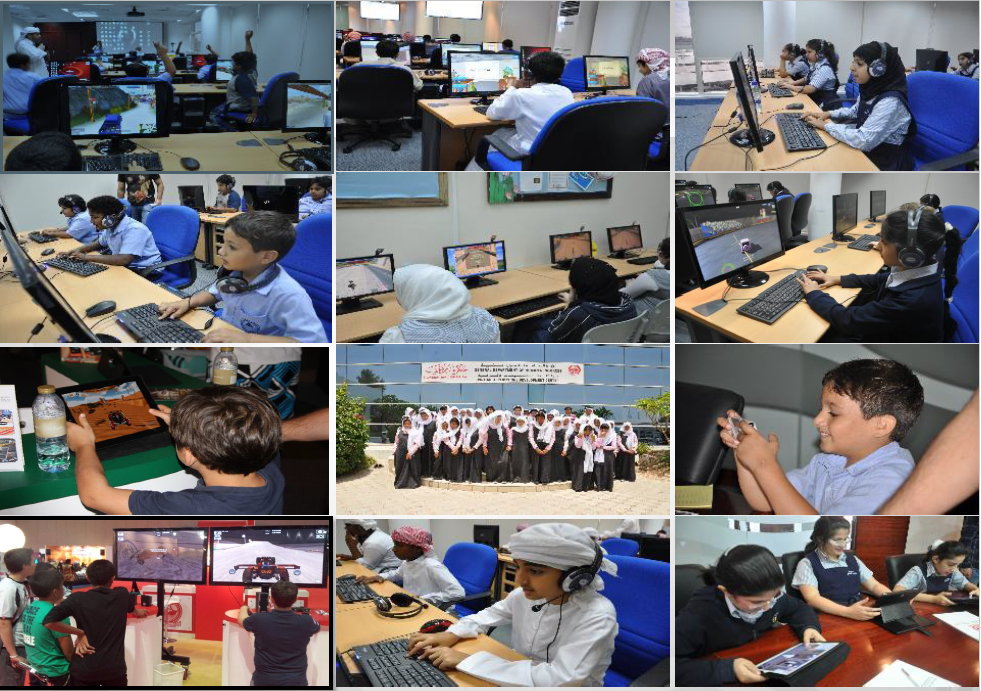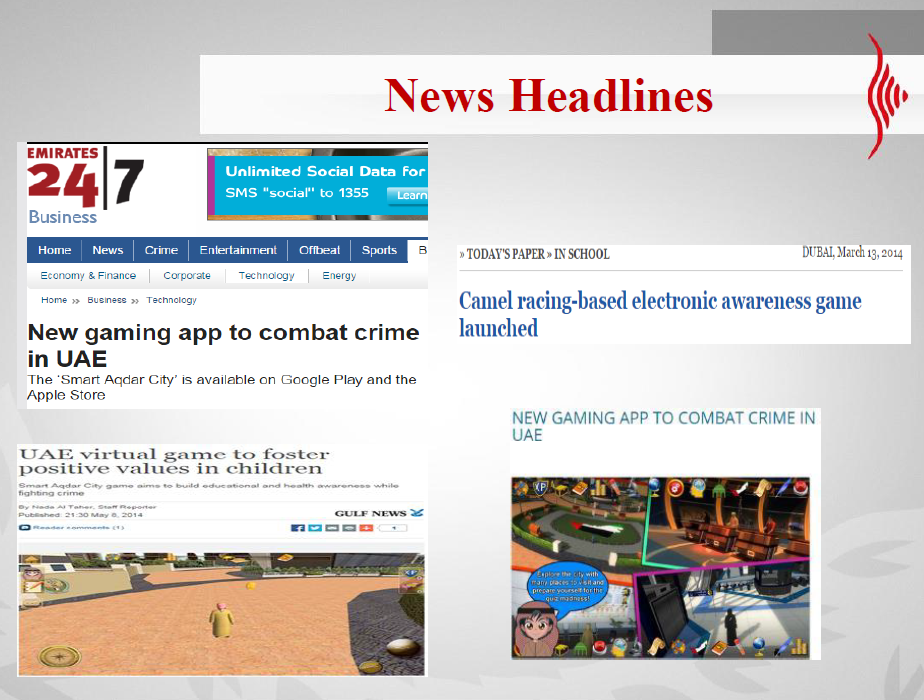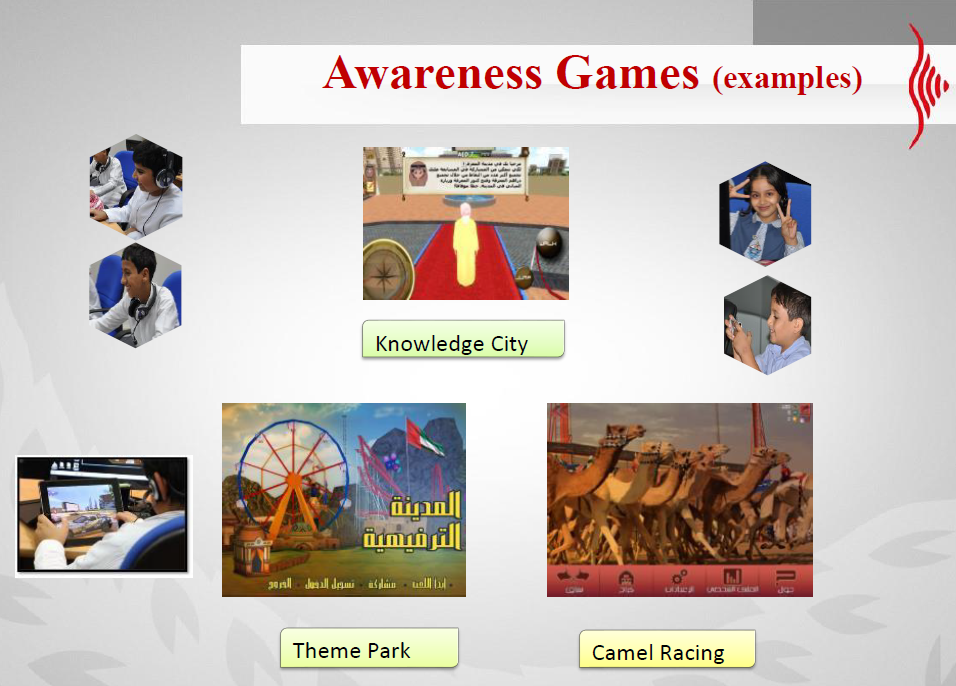
Electronic Awareness Games
- WEGO |
- Smart Sustainable City Projects Catalog
Abu Dhabi
To establish communication with this city regarding their project, please contact secretariat@we-gov.org
-
Fast Facts
City :
1,440,178
Downloads
200,000USD
Budget
5,800,000
Times Played
Region : Middle East
National GDP Per Capita (USD) : 40,711 (IMF, 2018)
City Population: 2,908,173 (2016)
Year Implemented : 2014
National Gini Index : N/A
Tags : EDUCATION
Technologies Utilized : Mobile applications
Funding Source : Government
Project Cost : $200,000
Project Savings :
Planned Project Duration : Ongoing
KPIs : Total Downloads, Number of users
-
Project Context and Overview
The United Arab Emirates has a population of over 9 million and is home to more than 202 different nationalities. As the capital city, Abu Dhabi believes in educating youth on social issues, in order to promote a strong sense of unity and allow for a safe and inclusive environment. To achieve this, The Khalifa Empowerment Program for Students (Aqdar) developed online video games that communicate important messages to students of different age groups. The Khalifa Empowerment Program is the umbrella initiative for all preventive and educational projects implemented at the state level. The video games introduce themes such as loyalty, strong family values, independence, and integrity. Abu Dhabi chose video games as a medium to convey their messages due to the city’s high number of smartphone users and video game players across age groups.
-
Project Planning and Implementation
The Khalifa Empowerment Program for Students (Aqdar) launched the electronic awareness games initiative in collaboration with over 40 private and public entities. Institutions held seminars, forums, and meetings to discuss and track the development of the project. Parents, school faculty, and police officers were offered training courses, lectures, and workshops to learn about the initiative and how to support the students.
The Khalifa Empowerment Program outlined a video game development process to ensure that the games were both entertaining and educational for different student age groups. First, students were surveyed to determine which video games they found more appealing. Then, video game prototypes were tested. After determining the targeted ages, educational content, and desired learning outcomes, the game design was refined in conjunction with psychologists and scenario writers. Psychologists and scenario writers made sure the educational content was seamlessly introduced into the gameplay. Finally, games were tested and evaluated with students. The Program had 40 focus groups with a total of 1,200 students. The program was implemented in a smaller scale in one school and gradually expanded to include all schools and grades on a citywide scale.
Instead of developing the games from scratch, the Khalifa Empowerment Program cut costs by using a game engine, a software that uses templates to allow developers to build games more quickly and efficiently. This way, the developers could focus on game play and include more awareness and educational content. $200,000 were allocated for the development of video games and human resources. -
Project Results
A third-party specialist certified by the UAE government evaluated the program. After being introduced to the video games, students were assessed on their knowledge about different subjects such as drug abuse, smoking, academic excellence, time management, and preparation for university life. High average scores (above 80%) were recorded for most test subjects. After the implementation of the program, more parents and students reported security concerns to the security hotline, indicating that there was an increased sense of civic responsibility and trust in security authorities. In 2016, the games have been downloaded 1,440,178 times and have been played over 5.8 million times.
The project also faced some challenges during the implementation. These included: limited number of trained staff to conduct lectures, unequal distribution of awareness materials, school administrations unwilling to collaborate, additional burden to institutions, and lack of involvement of parents. Yet, the program was able to overcome these difficulties and successfully implement the program city-wide. Today, the program is under the supervision of the Cabinet of the United Arab Emirates and will be expanded to cover schools nationwide. -
Recommendations for Transfer
In the case of Abu Dhabi, the program was feasible due to the high number of smartphone users and great interest in mobile games. Cities considering adopting similar projects should consider whether most of their population will have access to smartphones or other mobile devices and the internet to access the games.
An initiative of this scope heavily relies on the long-term commitment and communication among all stakeholders. Appropriate guidelines should be put in place to coordinate efforts and determine each partner’s responsibilities. -
Figures and Images



-
External links

